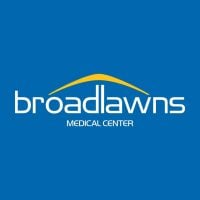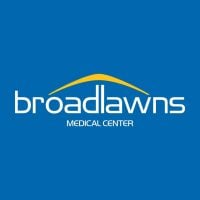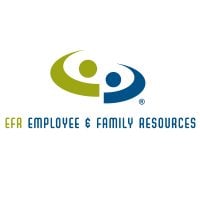Palm Partners Recovery Centers
Drug Rehab Center in West Des Moines, Iowa
- Substance Abuse
Palm Partners Recovery Centers in West Des Moines, Iowa is a Substance Abuse Treatment Facility that offers comprehensive treatment, including inpatient care, aftercare support, and a range of services and treatment methods, to help individuals overcome substance abuse and lead healthier lives.
About Palm Partners Recovery Centers in Iowa
Located in West Des Moines, Iowa, Palm Partners Recovery Centers is a Substance Abuse Treatment Facility dedicated to helping individuals suffering from substance abuse issues. With a focus on providing effective and comprehensive treatment, Palm Partners offers various levels of care to support individuals in their recovery journey. Whether someone is seeking inpatient treatment, aftercare support, or a combination of both, Palm Partners is equipped to provide the necessary services and guidance for those looking to get sober.
Palm Partners Recovery Centers offers a range of services and treatment methods to address addiction and substance abuse issues. Through their inpatient program, individuals receive 24-hour care and support in a structured and therapeutic environment. This includes individual and group counseling sessions, evidence-based therapy modalities, and holistic approaches such as yoga and meditation. Additionally, Palm Partners emphasizes the importance of aftercare support, offering continued guidance and assistance to help individuals maintain their sobriety long after completing the initial treatment program. With a focus on personalized care, Palm Partners aims to provide individuals with the tools and support they need to overcome substance abuse and lead a healthier, happier life.
Genders
Ages
Modality
Additional
Conditions and Issues Treated
It’s not easy getting sober on one’s own, or even going to rehab and escaping the grasp of addiction by oneself. Substance abuse treatment gives addicts a place to stay sober while learning what it takes to quit for good. They will learn from others about what works and what doesn’t work with remaining drug-free.
Treatment centers such as Palm Partners Recovery Centers focus on the needs of individual addicts to heal them. There is a combination of physical and mental therapies that treat the root cause of the addiction, whether it be family problems, stress, or past traumatic events.
The final benefit of substance abuse treatment is introducing new people who can help in your recovery after you leave Palm Partners Recovery Centers. Through group therapy sessions with other addicts and attending support meetings once a day, a person will learn how to interact with others and cope with cravings. This is a chance for you to rebuild your social circle healthily after you leave treatment.
Levels of Care Offered
This center offers a variety of custom treatment tailored to individual recovery. Currently available are Aftercare Support, Inpatient, with additional therapies available as listed below.
Individuals who are suffering from severe addiction or have a high risk for dangerous health concerns are often recommended to receive inpatient treatment.
Choosing to enter an inpatient treatment program is beneficial for people who are suffering from severe addiction, or who have a high risk for dangerous health concerns.
Inpatient treatment is beneficial for:
- People who have a history of severe withdrawal.
- People who have attempted to overcome addiction on their own without success.
- People who have a history of relapse, or have recently relapsed.
- People at risk for drug overdose or withdrawal-related complications.
- People with medical conditions that are worsened by drug or alcohol use.
Aftercare support should take place after outpatient treatment has ended. There are a few different types of aftercare support that patients can seek. These include 12 Step, Self-help groups (AA, NA), Therapeutic communities, Long-term, structured sober living arrangements, and Halfway houses (residential treatment centers).
Therapies & Programs
In general, trauma therapy is a clinical process that helps individuals deal with mental stress often caused by traumatic events. The therapist helps the person identify, understand, and work through the problem. This is done with the help of talking about it in group or one-on-one counseling sessions. Therapists use relaxation, role-playing, art, and music to help the person open up about what is bothering them.
There are many different types of trauma therapists, such as psychiatric nurses and counselors. Not everyone is a good candidate for this type of therapy; it is generally reserved for people who have recently experienced a traumatic event and struggle to get over it. It is often done for children, teenage victims of sexual assault, and war veterans.
Dialectical Behavior Therapy (DBT) is a type of therapy created in the late 1980s and early 1990s to help people with high rates of suicidal behavior. DBT helps people learn how to live a life that is no longer controlled by overwhelming emotions and urges. It is beneficial in treating drug addiction because it helps patients understand and cope with their cravings for drugs or alcohol rather than turning to those substances as a way of coping.
There is hope for people who are addicted to drugs and alcohol. Cognitive Behavioral Therapy (CBT) is the solution. CBT focuses on the underlying thoughts and behaviors that caused the addiction problem in the first place and may cause a relapse. This type of psychotherapy addresses negative feelings common in substance abuse disorders. It helps to change them by restructuring thought patterns. It’s about removing negative thoughts and providing long-term benefits while promoting self-awareness, self-control, and healthy ways to respond to negative thoughts. These sessions can be done by themselves or as part of combination therapy.
Additional Details
Specifics, location, and helpful extra information.
West Des Moines, Iowa 33483 Phone Number(561) 921-6166 Meta DetailsUpdated November 25, 2023
Staff Verified
Palm Partners Recovery Centers Patient Reviews
There are no reviews yet. Be the first one to write one.
West Des Moines, Iowa Addiction Information
Iowa ranks 2nd lowest in the nation for illicit drug use, but 12% of its residents are still using these drugs every single year. Methamphetamines account for more than 90% of all drug-related prison admissions in Iowa. Alcohol is the most widely abused substance in the state, with 23% of residents admitting to heavy drinking.
Treatment in Nearby Cities
- Independence, IA (114.7 mi.)
- Reserve, IA (111.0 mi.)
- Corning, IA (64.5 mi.)
- Urbandale, IA (5.0 mi.)
- Fredericksburg, IA (125.6 mi.)
Centers near Palm Partners Recovery Centers
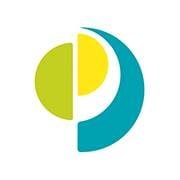
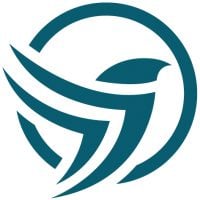


The facility name, logo and brand are the property and registered trademarks of Palm Partners Recovery Centers, and are being used for identification and informational purposes only. Use of these names, logos and brands shall not imply endorsement. RehabNow.org is not affiliated with or sponsored by Palm Partners Recovery Centers.

